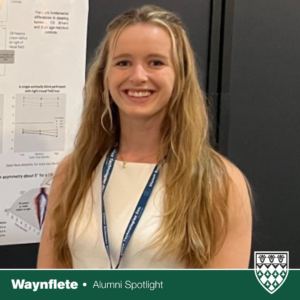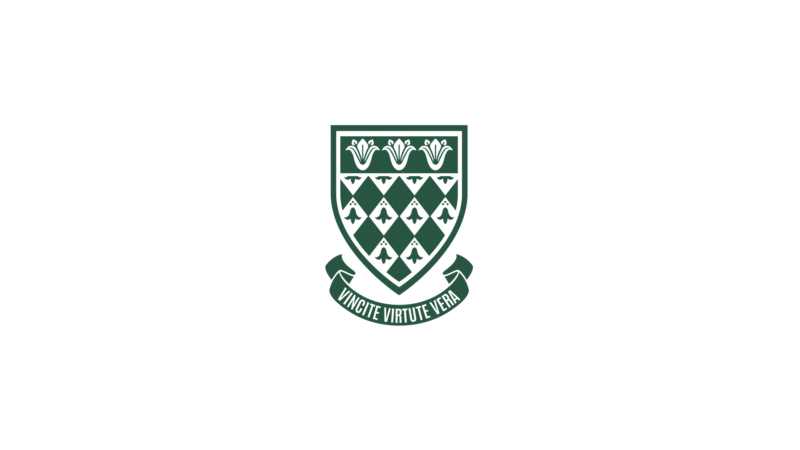Alumni Spotlight: Arianna Giguere ’16

In this brief interview, Arianna shares her passion for science and an update on her work, reflects on how her Waynflete teachers prepared her for success, and gives current Waynflete seniors tips for the future.
Can you tell us about your college experience? What did you major in? How did Waynflete prepare you/impact your college career?
“I graduated from Waynflete in 2016 and went on to study physics and math at the University of Maine. My decision to major in physics stemmed from my excitement about math and science, [something] that I always had from a young age. At Waynflete, I took every science course offered and participated in activities like the Science Olympiad competitions—all opportunities that challenged me and encouraged me to pursue my scientific interests. The support of my enthusiastic Waynflete teachers especially prepared me to excel in college.”
What are you passionate about? What inspires and motivates you?
“I am motivated by work that makes human lives better. Since college, my interests have shifted towards working with more human-centric data, especially in an age when user privacy and data protection is increasingly important. I love applying what I’ve learned from physics to help build safe technologies that improve lives. I’m currently researching ways to help stroke patients rehabilitate their vision, but next year I anticipate a career transition into the tech industry where I intend on contributing to the development of new influential technologies.”
Why does what you do matter?
“Near the end of my college experience, I realized that something was missing for me when it came to physics work. I still loved the concepts, but I wanted to do research that was more connected to people. I applied to graduate school to pursue a PhD in Imaging Science. This degree allowed me to study physics at the intersection of neuroscience and technology like virtual reality. These days, I am working on researching methods for vision rehabilitation for people who have vision loss due to stroke, a condition that affects approximately 250,000–500,000 people in the U.S. alone every year. In the future, my work has the potential to improve the driving safety of individuals suffering from this type of vision loss called cortical blindness.”
What advice would you give seniors who are trying to figure out what’s next for them?
“I would tell seniors that it’s okay if you don’t know what career you want to pursue yet. There are steps you can take to find a career path you will enjoy. When I was considering my next steps as a senior, I identified the classes or activities I was most interested in and why. If [you find that] the traditional college path is right for you, know that you aren’t necessarily locked into a major your first year—you don’t have to choose “correctly” on the first go. However, the more thought you can put into your decision ahead of time, the more grateful you’ll be later when your next big career decision comes along. Challenge yourself, and set yourself up for the best chance of success!”



